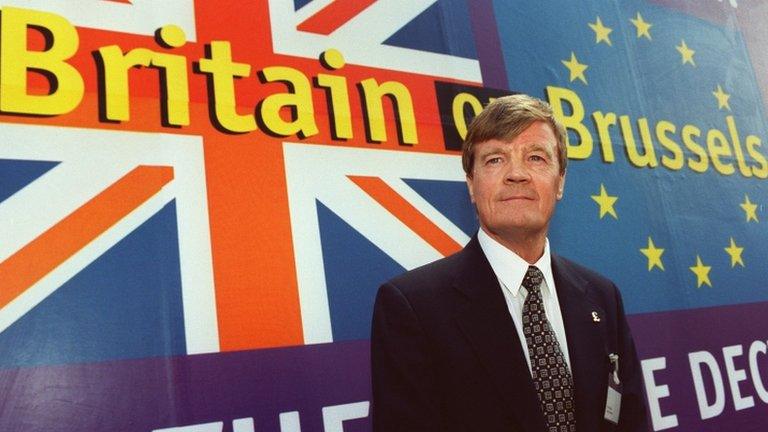UKIP's Nigel Farage promises political 'earthquake'
- Published
- comments
The BBC's Nick Robinson found out whether people in Sheffield would welcome a UKIP "earthquake"
UK Independence Party leader Nigel Farage has said there will be "an earthquake" in politics if he triumphs in next month's European elections.
Launching UKIP's campaign, he argued his policies on immigration and the EU were "straightforward" and "simple".
He called posters claiming millions of European workers are after UK jobs "a hard-hitting reflection of reality".
Mr Farage said he employed his German wife as a secretary as "nobody else" could do the job, with its long hours.
The European Parliament elections take place on Thursday, 22 May, with UKIP widely predicted to improve on its performance in 2009.
The party is calling for the UK to leave the EU and for a tightening up of immigration rules, with ultimate powers over this area of policy to be transferred from Brussels to Westminster.
'Get back control'
Launching his party's manifesto in Sheffield, Mr Farage said: "We want to have, post-EU, a sensible, open immigration policy that says we welcome people, but we have got to control the quantity and the quality of who comes to Britain.
"And at the moment we have turned our backs on talent from India and New Zealand because of an open door to Romania and Bulgaria. And that doesn't make any sense."
He told the BBC he wanted a policy allowing "30,000 to 50,000 people a year" in to the UK instead, so that those with the most useful skills could benefit the economy.
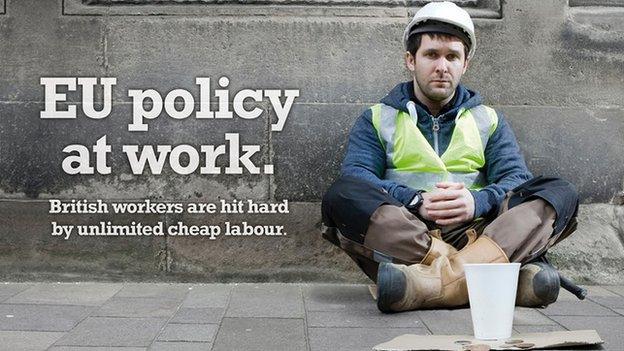
Nigel Farage said the posters would "ruffle a few feathers among the chattering classes"
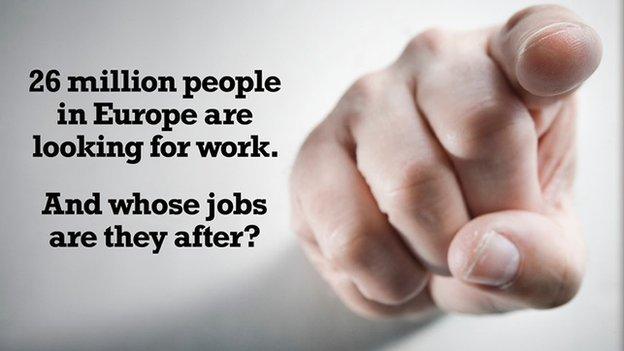
The posters have been released as Nigel Farage prepares to launch UKIP's election campaign
He said: "So we are going to fight this campaign with a straightforward, simple manifesto, but a message to the British people which is this: These are the most important European elections that have ever been fought in this country.
"We have got a chance, four-and-a-half weeks from now, of causing such a shock in the British political system that it will be nothing short of an earthquake. If UKIP win these elections, a referendum and an opportunity for us to get back control of our country will be one massive, massive step closer."
The party's posters, external include one showing a labourer begging for money, accompanied by the text "EU policy at work - British workers are hit hard by unlimited cheap labour".
UK taxpayers fund the "celebrity lifestyle" of Eurocrats, warns one poster, while another asks: "26 million people in Europe are looking for work. And whose job are they after?"
Mr Farage said the posters were "a hard-hitting reflection of reality as it is experienced by millions of British people struggling to earn a living outside the Westminster bubble".
"Are we going to ruffle a few feathers among the chattering classes? Yes," he said. "Are we bothered about that? Not in the slightest."
Mr Farage was asked by BBC political editor Nick Robinson why he employed his wife Kirsten, who is German, as his secretary, rather than employing a British person. He replied: "I don't think anybody else would want to be in my house at midnight, going through emails and getting me briefed for the next day."
Pressed on whether his wife was an example of a European person taking a British person's job, he replied: "Nobody else could do that job - not unless I married them."
Nick Robinson asks Mr Farage about his German wife's job
Mr Farage said his wife earned a "modest salary for working extremely unsociable hours for me and being available up to seven days a week. It's a very different situation to a mass of hundreds of thousands of people coming in and flooding the lower ends of the labour market in Britain."
A number of critics expressed their dismay with UKIP's campaign on social media, with Conservative peer Lord Deben tweeting, external: "UKIP stands for the worst in human beings: our prejudice, selfishness, and fear."
Labour's Keith Vaz, chairman of the Commons Home Affairs Committee, said UKIP had "lowered the tone of the European debate" and its stance was "hypocritical" because it had criticised Home Office vans carrying posters urging illegal immigrants to "Go home".
David Cameron on migrant workers: "If you look back five, ten years ago, we had a real problem in that when we did generate jobs, a lot of those were going to people from overseas"
Prime Minister David Cameron said parties had to "defend their own advertising campaigns", adding that only the Conservatives - who are promising an "in-out" referendum on the UK's EU membership - could deliver change.
He added that was "what our manifesto is about and, if we put out posters, that is what our posters will be about too".
Former Tory donor Paul Sykes, who is funding UKIP's £1.5m anti-EU campaign, told the Daily Telegraph, external it was "an essential public awareness campaign" on the effects of Brussels.
Mr Sykes is paying for the adverts directly instead of handing the cash to UKIP, allowing him to retain some editorial and financial control.
- Published22 April 2014
- Published22 April 2014
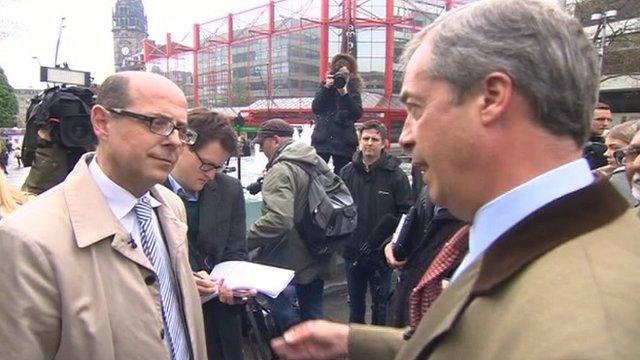
- Published17 April 2014
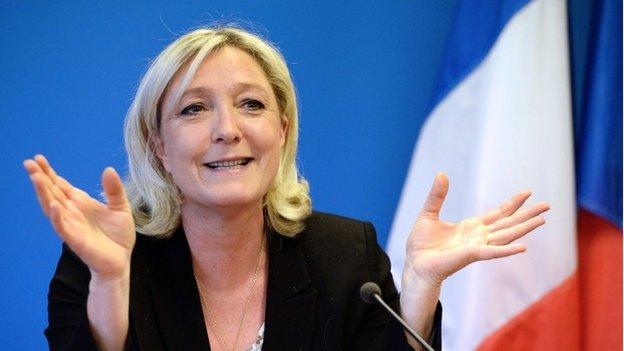
- Published15 April 2014
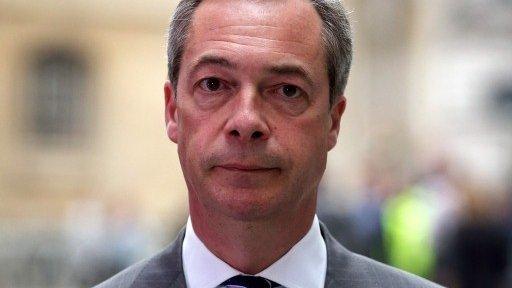
- Published3 April 2014
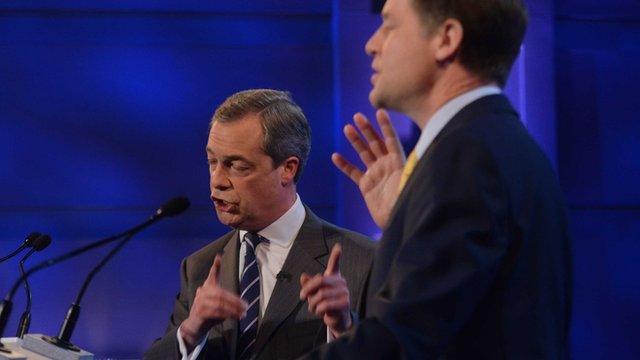
- Published18 November 2013
